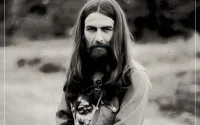Music, friendship and colonialism: The day George Harrison came to Ravi Shankar’s aid
Today marks the 50th anniversary of the release of George Harrison’s triumphant single ‘Bangla Desh’. The impetus for the song, and resulting concert, came from Harrison’s great friend, the legendary Indian Bengali musician Ravi Shankar. He had turned to the former Beatle in desperation, asking for help to alleviate the suffering caused by the 1970 Bhola Cyclone and the destructive Bangladesh Liberation War of 1971.
Harrison’s response would be the first-ever charity single by a major artist. ‘Bangla Desh’ was released at the peak of Harrison’s solo popularity and has since been described as “one of the most cogent social statements in music history”.
The single was released three days before the Concert for Bangladesh shows at New York’s Madison Square Garden. The concert was comprised of two all-star shows over the course of August 1st, 1971, featuring the likes of Bob Dylan, Eric Clapton and Billy Preston. It raised awareness and funds for the droves of Bengalis affected by both crises. The concerts preceded the likes of Live Aid, and ‘Bangla Desh’ became a top ten hit across the globe.
Before we delve into this trailblazing song, we must take a brief detour toward understanding how the relationship between Harrison and Shankar came to fruition and how the war in Bangladesh stemmed from largely the same system. When the British East India Company won a decisive victory over the Nawab of Bengal and his French allies at the Battle of Plassey on June 23rd, 1757, it would change the world forever. What would ensue over the following centuries is rightfully categorised as one of the most glaring examples of colonialism world history has to offer – British colonial rule in India.
Before India gained independence in 1947, there would be a considerable amount of toing and froing of goods, ideas, people, and words that would forever make the two country’s inherently interlinked. One only has to note that the most luxurious of the British crown jewels, the Koh-i-Noor, is a traditional Mughal royal stone. It was presented to Queen Victoria in 1850 after the British Empire’s belligerent acquisition of the Indian Punjab province in 1849.
To demonstrate this point further, the British and Western colonial mindset was one of plunder in both the literal and metaphysical sense. We should heed the number of Indian words that have assimilated themselves into the English lexicon since the colonial period. Bandana, Bungalow, Cushy, Khaki, Dungaree, Loot, Pundit, Pyjamas, Shampoo, Thug, (Hot) Toddy, Veranda, the list is endless. Words pertaining to every facet of the English world’s life have been plucked from the traditional Indian tongue. If you would like to delve deeper into this, the largely unknown 1886 dictionary, Hobson-Jobson, is the primary source for this information, with over 2,000 examples of Anglo-Indian words and terms stemming from British rule in India.
An all-encompassing system, colonialism would, of course, affect popular culture too. What do disparate elements such as James Cameron’s blockbuster Avatar, grunge legends Nirvana, and pop-rockers The Bangles have in common? All owe their names to various Indian origins. It is in this vein then that we will proceed. Colonialism was undoubtedly a terrible thing, a deeply unfair, racialised system that led to the development of the Western world at the expense of the colonised. In this case, focusing on India and Britain, colonialism spawned four modern country’s that owe the majority of their modern history to this anglocentric mode of rule. In addition to the modern UK, these are known today as India, Pakistan and Bangladesh.
It wasn’t always so. What also stemmed from India gaining independence in 1947 was the partition. Without getting too bogged down in what is a complex situation, the old colonial India split into two different dominions, India and Pakistan, largely based on the long-standing faultlines between the Hindu and Muslim populations. Pakistan was divided into East and West, separated by the vast land border of India. The former Indian province of East Bengal then became known as East Pakistan but would become the country of Bangladesh in 1971. It broke from Pakistan in the bitter war of independence, and it was this that caused Shankar to turn to Harrison requesting aid for his people and homeland.
There exists an argument that, over the years, British colonial rule had held the divided religions together by a thread and that the vacuum left by its rule added to the swelling Hindu and Muslim nationalisms, led to the bloody partition and then the terrible Bangladeshi war for independence. Whilst one may focus on the disturbing racism and unfairness of colonialism, that is not our lot, and there is plenty of discourse out there that is far more qualified to unpick the dense matter. Edward Said, Sanjay Seth, Partha Chatterjee and poet Tagore are just some of the foremost voices on the matter.


